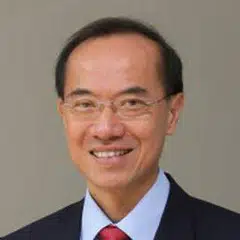George Yeo: Charm and China in a multipolar world
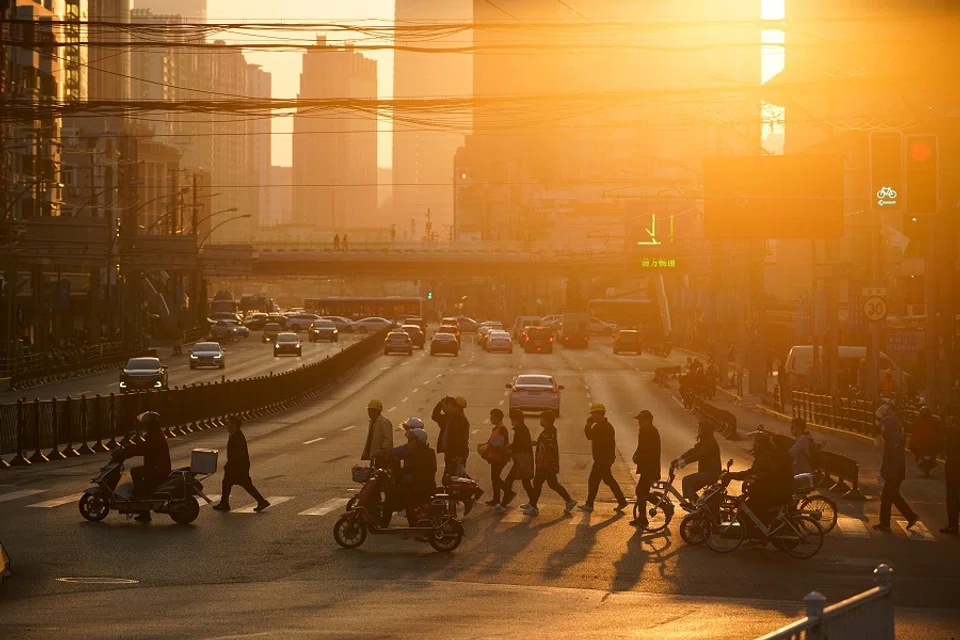
Let me use the analysis of Karl Marx - that there is an economic base, and there is a superstructure. If we look at the economic base, there is multipolarity. Whereas in the superstructure, multipolarity will take time because of how history has developed.
This is because the Western world has been used to dominating the world for a long time, so it will take time for that mentality and the institutions, which were derived from that mentality, to change.
This will take time because it's not something which can happen overnight. And China must not underestimate the difficulty of changing the superstructure.
The domination is in the international media. It's in international organisations. It is an intellectual way of thinking.
...there's no point in getting angry about this. And a debate will not resolve this issue. This is a problem of the superstructure. It will take time.
'Moral equivalence' a tall order for the West
But even the idea of multipolarity is objectionable to many Americans. They don't believe that this is a multipolar world. They still believe that they are the main dominant power in the world, not only economically, but morally.
For us in Asia, the idea that America is morally dominant is hard to accept. But subjectively, in their mind, this is their position.
If you interfere in their politics, they'll be very angry. But when they intervene in our politics, they say this is for our own good.
Therefore, there is no moral equivalence.
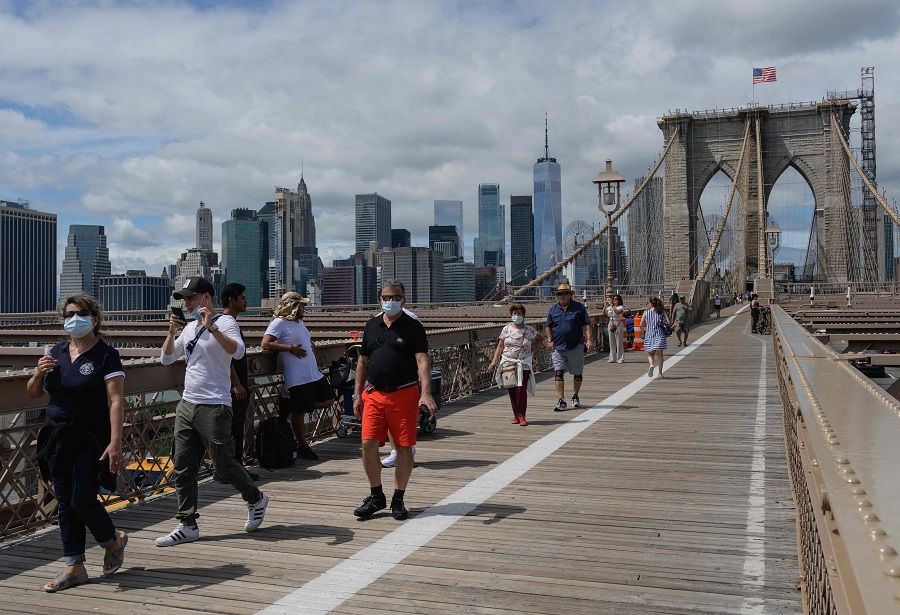
Now, there's no point in getting angry about this. And a debate will not resolve this issue. This is a problem of the superstructure. It will take time.
I know many Chinese people are very angry, so they are very happy when the foreign ministry spokesman adopts a wolf warrior attitude and hits back. Hence, when the European Parliament made comments about Xinjiang, China hit back. And China felt good about hitting back. And when Australia took a position which was very pro-America, China retaliated economically.
And Chinese people are happy that the country is strong, firm and prepared to react.
But this is not necessarily a wise thing to do.
I think Chinese people have a great wisdom, which is "to be patient". And sometimes to have the knife placed near your heart and not to react - that is wisdom.
Unfortunately, the Chinese system operates in a certain way. Officials are afraid of their bosses. So when they say things, it is not necessarily to persuade somebody else. It is also to please their bosses.
We can understand this in Singapore because we have the same phenomenon in Singapore. People are more afraid of their bosses than of their audience. I don't think you can change this system because this system is the product of a long civilisation.
But the bosses can give more room to the subordinates, so that the subordinates know that they can be more tactical.
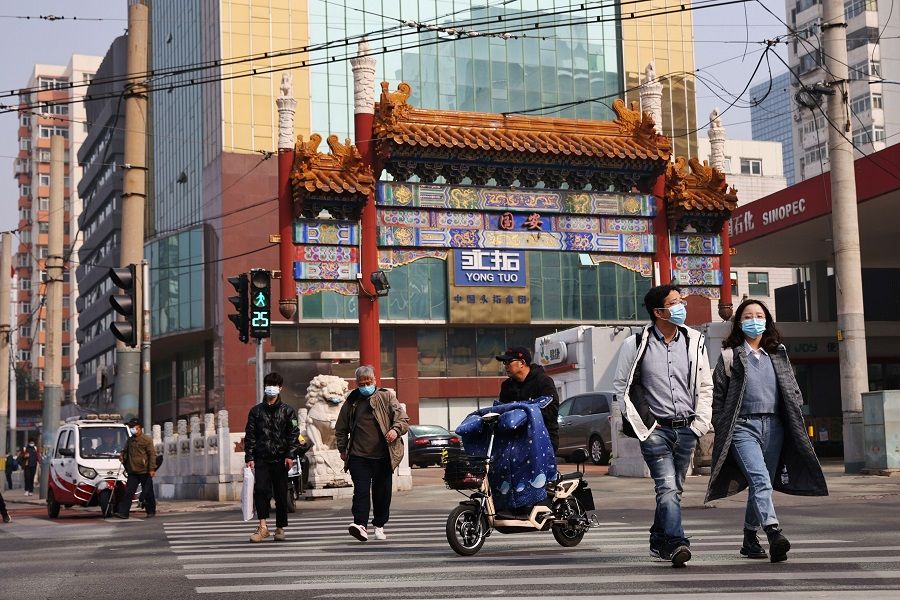
I had time during this Covid period to learn weiqi, something I had always wanted to do but never had the time for before. But the more I learnt it, the more difficult it became for me.
Because you can have a great strategy, you can have a long-term view, but if on the little things you make mistakes, you will lose.
Advancing multipolarity - the devil is in the details
So achieving the multipolarity in the superstructure requires a lot of attention to little details. If mistakes are made, these mistakes, over time, can affect the economic base. And this can affect China's future. And lead to an unhappy world.
They [Westerners] can accept criticisms from one another, but when China criticises them, they become very upset.
To begin with, the objection to multipolarity is firstly from America.
Many Europeans don't accept this because they think that Europe is a separate pole from the US. But they believe that the Western people should dominate.
And suddenly to see Chinese people stand up to them, look them in the eye and say no - many of them can't accept it. And they get very upset when China criticises them. They can accept criticisms from one another, but when China criticises them, they become very upset.
I think we should understand this and factor this into what we do. Sometimes, it is important to "give face" - provided giving face is not seen as weakness. So sometimes when we've achieved a strong position, it's good to give some face. Otherwise, the loss of face will lead to an irrational reaction, which can harm both parties.
India-China relations and importance of 'giving face'
Let me take an example of the skirmishes on the India-China border. In the early 1960s, Nehru had a Forward Policy, and that led to the China-India war. India lost, and the wound has still not healed.
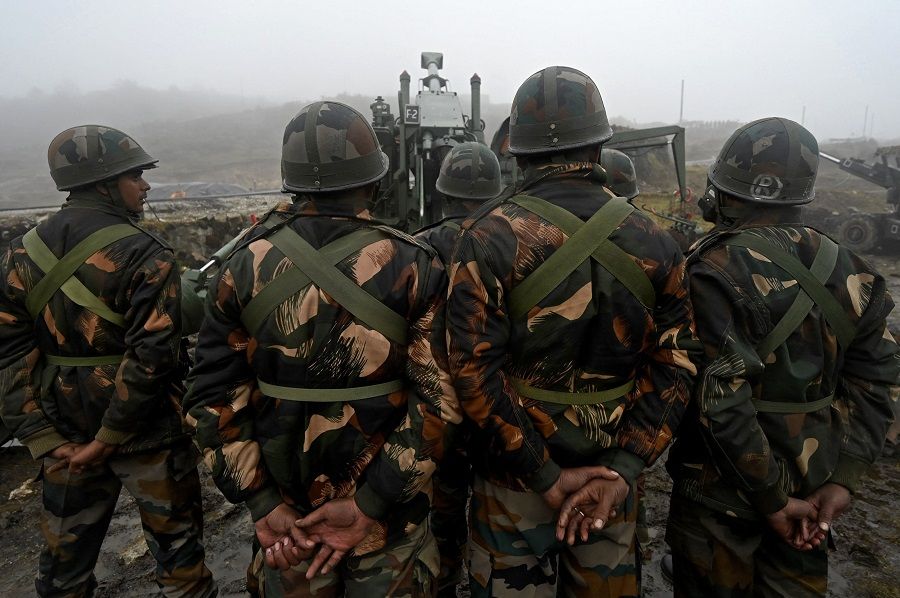
Until recently, many people in China did not know there was such a war. If you point to a map and ask them "Where was the war?", they will not be able to tell you what happened. But in India, it was never forgotten.
In fact, there was a report on the war - on the origins of the war and what happened - which was done at a very high level. Till today, that report (the Henderson-Brooks report) has not been released to the Indian public. It's already been 60 years. And they are not prepared to let the public know exactly what happened.
China believes the recent skirmishes were due to India making moves, small moves, on the border. Of course, in India they have a different view.
The important point is that India lost many soldiers. 20 of them. China might have lost two or three or four.
But in their encounter, China prevailed. China thought, "It's good that India has learnt a lesson." But in fact, India has lost face. And the reaction is completely disproportionate to what happened.
So suddenly all Chinese companies in India were affected. India made a decisive move to reaffirm their membership in the Quad and to support it.
So I asked myself, could China have handled it better? I do not know the details. I have no access to classified reports.
But if I were China, I would find a way to give face to India. Take the time Mr Modi made a special effort to be close to China - when President Xi Jinping visited India, he hosted Xi in his home state of Gujarat, the capital of Ahmedabad.
After that, Xi Jinping hosted him in Xi'an and brought him to the Giant Wild Goose Pagoda (大雁塔, Dayan ta) where monk-scholar Xuanzang (玄奘) went back to after leaving Nalanda in the 7th century. The Giant Wild Goose Pagoda was the temple which Emperor Taizong of Tang built for Xuanzang when he returned to China.
Between India and China, two ancient civilisations, when they deal with each other, there must be a sense of cultural context. So giving face to each other is very important.
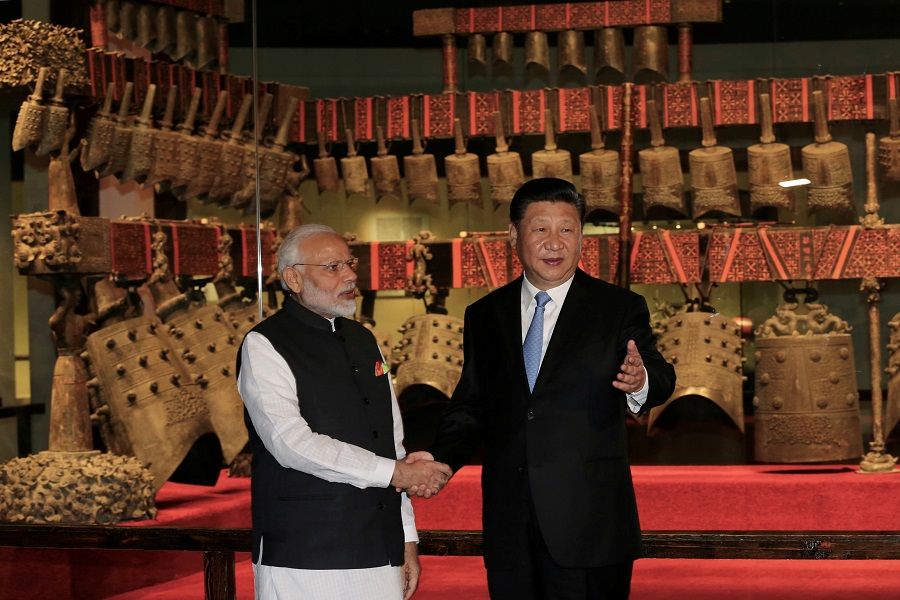
It was Modi who proposed regular retreats with Xi Jinping. So Xi Jinping invited Modi to Wuhan. At that time, no one in India knew what Wuhan was, or where Wuhan was. Of course, today everybody knows. But not at that time. They met over two or three days.
And the next visit was in South India, in the state of Tamil Nadu, in a small town by the sea called Mahabalipuram. Why did they choose Mahabalipuram, a port city during the reign of the Pallava dynasty? There's a temple with many Hindu gods, hundreds of Hindu gods. Among the hundreds of Hindu gods, there is one Chinese face. Indian scholars believe that the Chinese face is Faxian. Faxian was a 5th century Buddhist monk who went to India and then went back to China via Indonesia. When Faxian was in India, he visited Kanchipuram, then the capital of the Pallava dynasty.
Between India and China, two ancient civilisations, when they deal with each other, there must be a sense of cultural context. So giving face to each other is very important.
I'm not supporting one side or the other. I read Chinese newspapers and Indian newspapers in English.
So I thought, no, this is not the proper way for two ancient civilisations to interact with one another.
Europe does not want to feel inferior to China
You take, say, China's relationship with Europe. China has great respect for European civilisation. I remember watching the documentary series The Rise of the Great Powers (《大国崛起》). Every episode, whether it was about Portugal, Spain, Holland, Germany, France, Britain or Russia, was produced with admiration. In many ways, Europe had the greatest impact on world civilisation.
Because of the small area, they're always divided. This is like the Spring and Autumn period and the Warring States period in China. A period when people were struggling with ideas, and many different schools of thought blossomed.
All of them, the European countries, know that China is an ancient civilisation, that it has a long history with lots of accomplishments. But in their heart, they do not want to feel inferior to China.

When dealing with Europe, it's good to begin with their history. Then we're not just addressing the mind, we're addressing the heart.
But sometimes, because China feels that it is being unfairly treated, it hits back. And Chinese people are very happy. They're very happy on social media. But this is not good for China.
Because it is better to understand how others think and how to get into their heart. This requires a lot of thought. It requires a lot of creativity.
All of them, the European countries, know that China is an ancient civilisation, that it has a long history with lots of accomplishments. But in their heart, they do not want to feel inferior to China. That's important to remember: they do not want to feel inferior to China.
So China should explain itself, but without boasting or being arrogant.
And you need all kinds of people to do that work, not just politicians and foreign ministry diplomats. You need musicians, you need artists, you need writers, you need poets, you need business people to change the view of China in Europe.
China knows that in the West, there's a lot of anti-China sentiment. That it's gotten from bad to worse. And you say, "Oh, it's because of America." That is a superficial analysis.
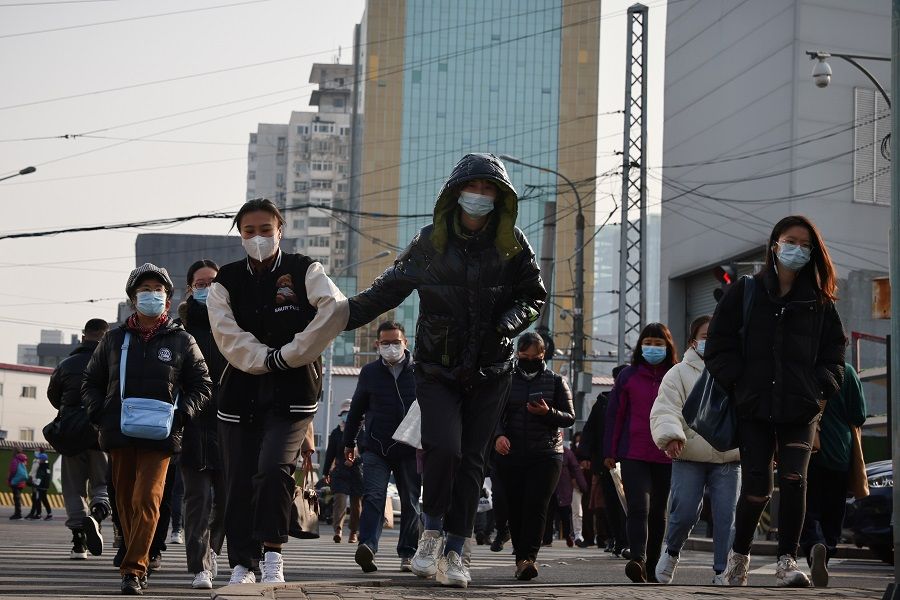
America is an influence, only because the Europeans already feel that way. Take Lithuania. Lithuania has gone out of its way to poke China in the eye, so China gets very angry with Lithuania.
The Baltic republics - Lithuania, Estonia, Latvia - for years they've suffered under the Soviet Union. So they look at the world through that historical lens.
So, sometimes you have to be hard, sometimes you need to be soft, but knowing when to be hard and when to be soft is an art. It is not easy. It requires judgement.
Going back to Sun Tzu's The Art of War - know yourself and know your enemy. It is not just about the military and economy, it is also about civilisation and emotion. You know your own civilisation and your own emotions. You must also understand the other party's civilisation and emotions.
It takes time. I'm not saying that this is easy. Maybe it will come eventually, sooner or later. But it will come at lower cost if we handle this with greater skill. The more we dislike a person, the more we're angry with a person, the more we must try to understand that person.
Understand him emotionally.
Singapore's position amid China-US rivalry
Singapore's position is the position of ASEAN. ASEAN makes Singapore's position more comfortable. ASEAN will always be neutral. ASEAN will not take sides. ASEAN is already China's biggest trading partner, bigger than the EU, bigger than the US. The more important China is to us economically, the more ASEAN will want to diversify. The more Chinese investments come to Southeast Asia, the more China markets are important to us, the more ASEAN countries will welcome America, Japan, India and Europe.
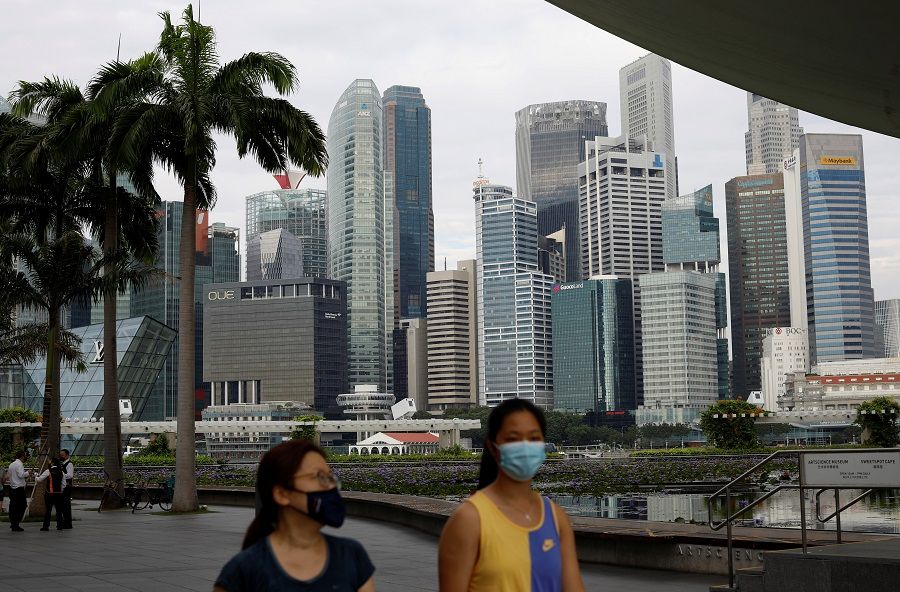
This is natural. If you were in ASEAN, this would be your position.
This kind of Southeast Asia is very good for China. Because it means that Southeast Asia would never be a threat or a problem to China.
In 2002, when Premier Zhu Rongji and the leaders of ASEAN were in Phnom Penh, they signed the framework agreement for the ASEAN-China free trade agreement. I remember two statements made by Premier Zhu.
One, if after ten years the trade imbalance is too much in China's favour, then we shall renegotiate the trade agreement.
And the second statement was remarkable. It said China does not seek for itself an exclusive position in Southeast Asia.
I was there, so when I heard it, I thought, "Yes, Premier Zhu understands what is in our heart. Our fear.".
Why do we choose America? Because without America, who will ensure that the Strait of Malacca and the Singapore Strait will remain open for international shipping?
Singapore is close to the US for obvious reasons.
I was in the air force for many years. I was in charge of buying aeroplanes and weapon systems. Our most advanced weapon systems are from America.
Why do we choose America? Because without America, who will ensure that the Strait of Malacca and the Singapore Strait will remain open for international shipping?
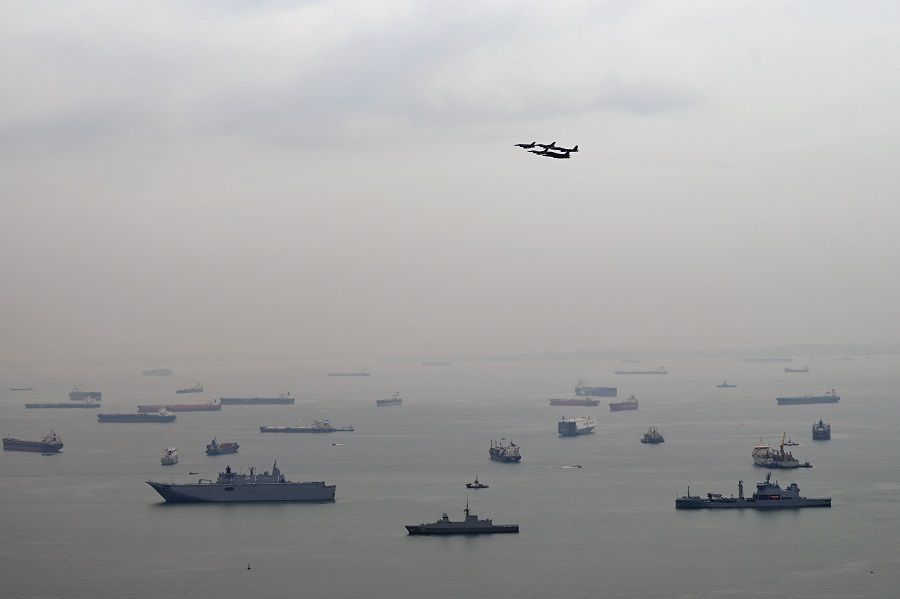
Naturally we are afraid of our neighbours. Because they're bigger than us. But if there's a superpower in the region, then everything will be kept open.
It's for this reason that during the Ming dynasty, during the Yongle period, the Ming dynasty supported Malacca.
Maybe one day China's navy will be so encompassing it will ensure freedom of navigation all over Asia. However I think it will be very unwise for China to have such an ambition.
Because this is not the 15th century. If you do that, India, Japan, and other countries will organise themselves against China. So from our perspective, naturally we want the Americans to be around.
The key is Taiwan.
Will Singapore help America against Taiwan? I think Singapore's position has been very clear on this matter. You think about it. Why did the Wang-Koo talks take place in Singapore in 1993? Why did the Xi Jinping-Ma Ying-jeou talks happen in Singapore in 2015?
It's because we have a very clear view that there is one China, that there should be reunification.
Of course, we don't want it tomorrow because we have an interest in a separate Taiwan. But we do not take the American position that it should happen far into the future.
I remember Lee Kuan Yew described it in this way. He said that China wants Taiwan and China to converge early. America wants it to be parallel lines going to the horizon. Singapore's position is that it should converge.
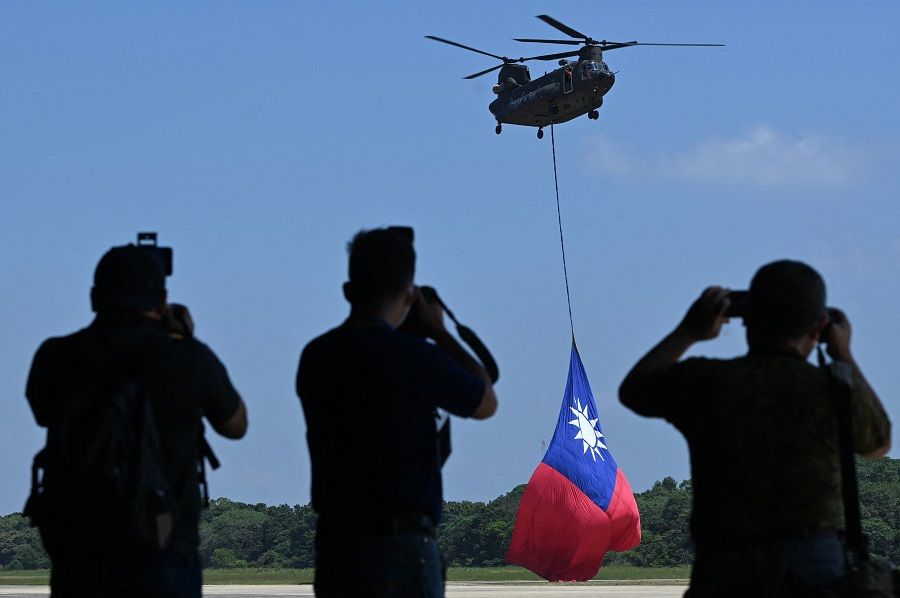
The other issue is the South China Sea.
And this must be settled by negotiation. No country can give up its claim. Their own people will not accept it.
The nine-dash line used to be the eleven-dash line. In the early 1950s, Mao Zedong and Ho Chi Minh marked out their boundary in the Gulf of Tonkin.
So the eleven-dash line became the nine-dash line. Maybe over time from nine-dash to seven-dash line, five-dash line, no-dash line. But this will take a long time.
So in the meantime, we should have peace and joint economic development. This is why the Code of Conduct (COC) in the South China Sea is very important.
And I think it is important for China to take a magnanimous approach. After all, China is a very big country. The other countries are small. So China can afford to be generous. Because this will bring peace. This peace is of great strategic importance to China.
Who doesn't want an agreement between ASEAN and China? Many countries would not want it. They want ASEAN and China to fight over the South China Sea. Because then they will have advantages.
China has to take a clear position on Taiwan independence. And the clearer China is, the less chances of there being an accident, the earlier reunification will take place.
On Singapore's role in resolving the Taiwan issue
Singapore does not desire a role in this. It's too dangerous.
I think China has to take a clear position on Taiwan independence. And the clearer China is, the less chances of there being an accident, the earlier reunification will take place. The less the US encourages Taiwanese independence, the more relaxed China can be. So during the period of Ma Ying-jeou, relations were getting better and better.
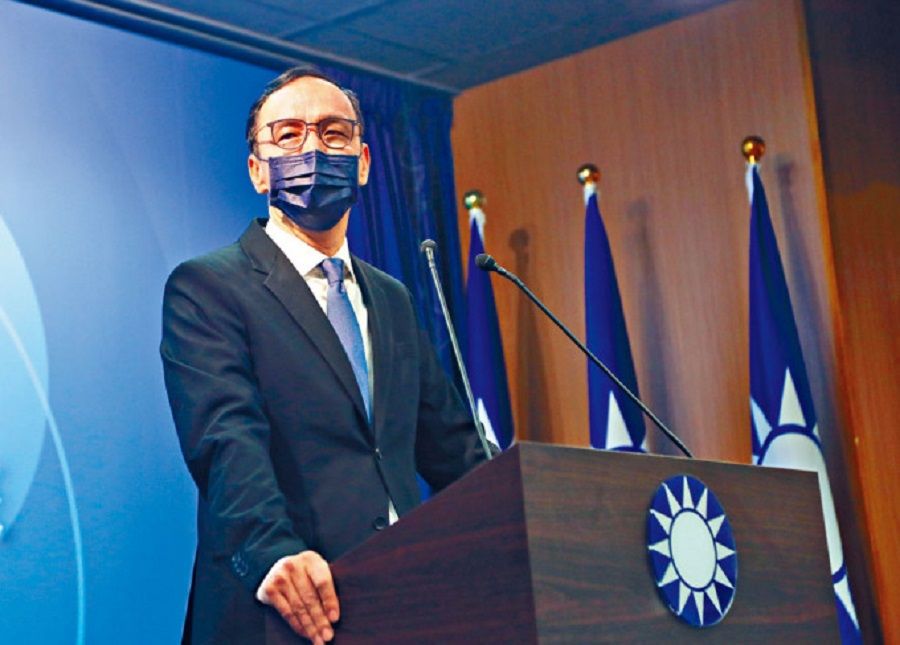
Today, the Kuomintang has a new chairman, Eric Chu Li-luan, my old friend. So I immediately texted him my congratulations. I said, "You have a critical mission of the greatest importance."
After a few hours, President Xi wrote him a congratulatory letter. And within a few hours, Chu replied to Xi.
I think that's very interesting because there was a competitor to Chu - Chang Ya-chung. He was too pro-Mainland. If he becomes the KMT candidate and stands for elections against the DPP, he's sure to lose. So I see the letter from Xi Jinping to Chu Li-luan as a way of telling Chang Ya-chung to cool it.
But when China deals with Taiwan, you need policy, you need demonstration of force, but you must also win over the hearts of Taiwanese people. The internal factors are just as important as the external factors. And that is very difficult. And it requires a lot of thought.
I watched live on 9 October, the commemoration of the 110th anniversary of the Xinhai Revolution in Beijing. Then on the Double Tenth Day, I watched, live, the celebrations in Taipei.
The most important quality for China to have at this point in time is one word: charm. You need charm.
In Beijing, the big picture in the middle was of the "father of modern China", Sun Yat-sen. But I watched the celebration in Taipei. They never mentioned "110". There was no mention of the Xinhai Revolution, no mention of the "father of the nation". They only mentioned 72 years of the Republic of China (中华民国) in Taiwan.
Ma Ying-jeou, Chu Li-luan, they were all very angry. So within Taiwan society, there is a debate.
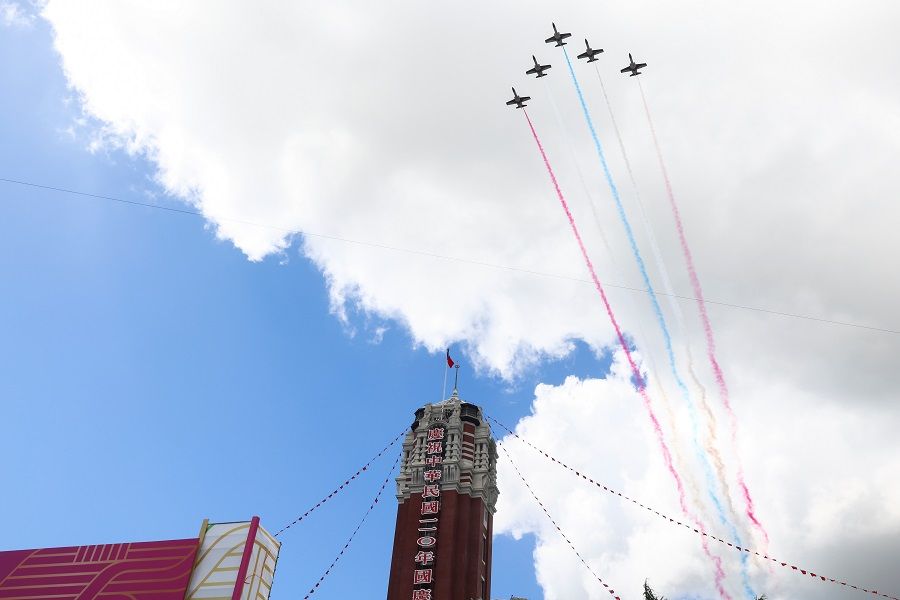
China has to think, you are involved in an internal debate, that's no good. You need to make some subtle moves. The most important quality for China to have at this point in time is one word: charm. You need charm.
It's easy to say, but how do you achieve it? That's not easy. You can only achieve it through understanding, in great detail, the person you're trying to charm. What's in his mind, what's in his heart.
On China-Japan relations
I think the Japanese are in a very sad situation. They want to be a normal nation, but they cannot be a normal nation.
This is the Japanese perspective, which I think we should understand. After the Second Opium War, any Japanese ship landing on the China coast along the Yangtze River would be inspected by Westerners. So the Japanese knew that if they did not change quickly, they would suffer the same fate as China. And their great fear was Russia.
Because Russia was coming down from Manchuria all the way to the Liaodong peninsula. Japan was not afraid of China. China was too weak. They were afraid that Russia would come down into Korea and threaten Japan. So in their own mind, they had to move to protect themselves, by moving into China. Of course, they did terrible things.
Then the Americans told Japan, you have to get out of China. After 1937, they imposed an oil embargo on Japan. The Japanese believed that they were forced into war with America. After Germany surrendered, Stalin moved a million soldiers to the Far East and moved into Manchuria. The Americans knew that if the war did not end, the Soviet Union would occupy maybe half of Japan, the way they occupied Germany. So they dropped the atomic bombs on Hiroshima and Nagasaki. The atomic bombs were very cruel because you are killing hundreds of thousands of innocent people.
So Japan is stuck in a position where they cannot be themselves. How long can this continue?
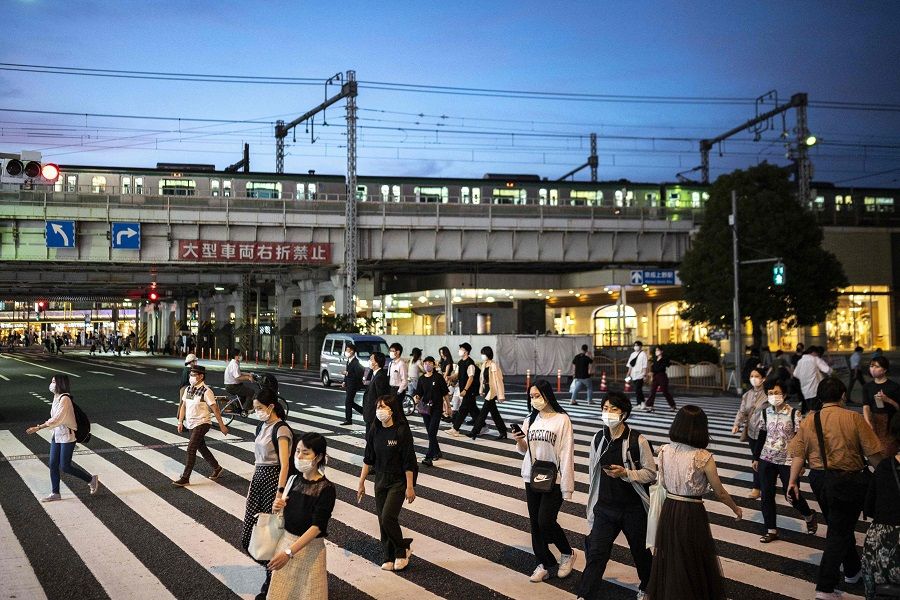
The Americans did that because they knew that if they didn't move, the Soviet Union would move.
I have visited both Nagasaki and Hiroshima. I can understand their profound sense of injustice. Why did this happen to us?
But because they depend on America, they can't criticise America. They can't speak what is in their heart.
One day the America Postal Service wanted to issue a stamp to talk about how the atomic bombs ended the war. There was a widespread protest in Japan. In the end, the Americans did not issue the stamp.
So Japan is stuck in a position where they cannot be themselves. How long can this continue? I ask myself.
I think one day Japan will be a normal country again. And have normal relations with the US and China. But it will take time.
I think when China looks at Japan, they should look at the future and say, look, what does Japan want to be? And maybe help Japan get there.
Related: Chan Chun Sing: Singapore amid great power rivalry | China-US competition: Why small countries will not choose sides | Former Singapore FM George Yeo on CCP's centenary: The Chinese revolution continues | Both sides of the Taiwan Strait fear imminent war | ASEAN's deft diplomacy with its dialogue partners | It's complicated: Chinese and Japanese public sentiments towards each other
